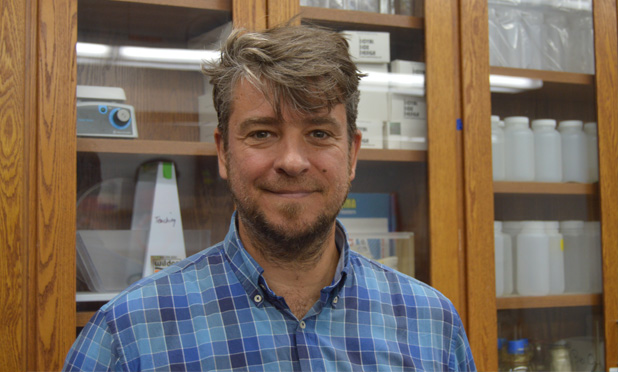As the school year begins, The University of Texas Marine Science Institute welcomes a new Associate Professor, Dr. Mark Lever.
Dr. Lever uses highly-sophisticated instruments and techniques to understand the role of microorganisms in the global carbon cycle. His research has even probed rocks deep within the earth’s crust to discover that microbes live and survive in rocks estimated at 3.5 million years old. In addition to his ability to provide insight into Earth’s carbon cycles on ancient time scales, Dr. Lever is also interested in the present. Some of this work will help understand how the activities of marine animals affect the role of sediments as carbon sinks, while other work will focus on how human disturbance by pollution, fishing, or too many nutrients influences the release of sedimentary greenhouse gasses to the atmosphere. The vast and unique lagoonal ecosystems of the Texas Coastal Bend, including the Mission Aransas National Estuarine Research Reserve, will serve as a key natural laboratory for his future research.
Dr. Lever also brings many international ties and partnership opportunities. While Dr. Lever received his Ph.D. at the University of North Carolina, Chapel Hill, he recently held a faculty position at the Swiss Federal Institute of Technology. Dr. Lever is joined by his family, Dr. Rivka Syd Eisner and their two children, and they plan to reside in Port Aransas, Texas.
